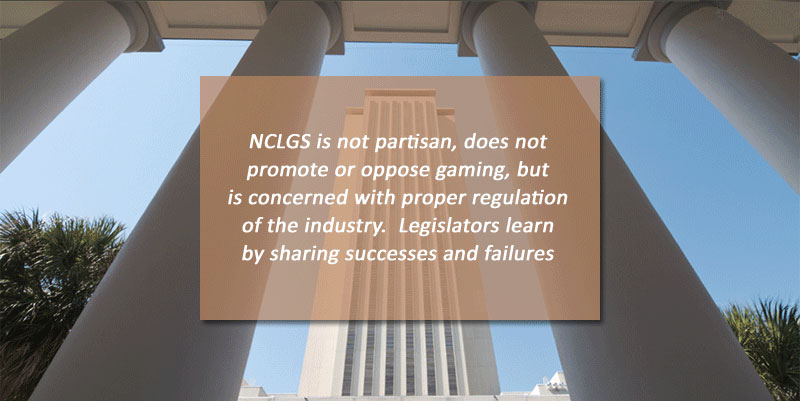 |
Q&A with Ronnie Jones, former chairman of the Louisiana Gaming Control Board |
|
Question: During your nearly seven years as the lead regulator in Louisiana, what were the most important challenges you faced, and how did you address them? Jones: Wow, there were lots of challenges but I’ll try to synthesize them down. One of the most frustrating challenges was navigating the political minefields with legislators in seeking changes to the 25-year-old gaming laws. They craved the revenue generated by casinos, but they were reluctant to permit rusting “riverboats” to move onto land despite the fact that almost every other state had done so. Most of the pressure to stop any changes was pushed by the Louisiana Family Forum, which represented (and represents) conservative interests at the legislature. In response to that opposition, I sought legislative support to create a task force to study the issue and make recommendations for changes to the gaming provisions. After 18 months of hearings, we recommended amended language in the law and got a bill through the legislature without a vote to spare. It was a grueling experience. Moreover, they refused for four years in a row to approve sports betting – for all the wrong reasons. Fortunately, the push I started became reality this year. Louisiana approved a broad array of gaming authorizations nearly 30 years ago, but the intransigence of legislators to make changes was maddening. It’s a much more conservative state today, and that complicates the process. Another challenge was walking that thin line between regulating and promoting gaming’s economic development. Some of my fellow regulators in other states questioned how I managed to balance the two competing interests. In Louisiana, I established an unprecedented relationship with property managers and gaming CEOs. For that I was sometimes criticized by legislators and reporters. I had to constantly remind everyone that I was chairman of the Gaming Control Board, not the Gaming Promotion Board. But I genuinely believed, as I do today, that a regulator can have a relationship with the industry and still protect the state’s interests. If properly regulated, gaming can thrive in a jurisdiction. We must always remember that gaming is almost always made legal to promote economic development in a state, and a regulator cannot ignore that public policy. A final challenge I faced was relying on an agency outside my control for enforcement and investigations. The original legislation authorizing gaming in the state set up a structure with checks and balances — a worthy goal. Legal counsel to the Board rests with the Attorney General’s Gaming Division under the supervision of the elected Attorney General. Enforcement and licensing are conducted by the Louisiana State Police under the supervision of the Superintendent of State Police, a gubernatorial appointee. Unfortunately, the State Police Gaming Division is typically understaffed, and gaming – despite being a huge contributor to the [state police] budget – is considered a lower operational priority within the agency. Too often, the division becomes a burial ground for problem troopers who can’t work anywhere else in the organization. I worked diligently to reverse the trend and experienced some success, but every change in administrations is going to present the same challenges to the Board’s chair. Question: How did your relationship with the regulated casinos evolve over your time in office? Jones: As outlined above, I took a proactive role as regulator, believing that it was impossible to regulate a statewide industry by sitting behind a desk at the Board’s office in the capital city. I reached out to general managers and visited each licensed property at least twice a year. We talked about regulatory issues, compliance with minority hiring and procurement goals, and staffing. I also established an open line of communications with CEOs. One CEO told me how shocked he was that I would deal with him directly – have a cup of coffee and talk about gaming in the state. All of them had my personal mobile number and, conversely, I never hesitated to call anyone of them as necessary if it served the state’s interests. Question: What are the lessons you learned that you would like other regulators across the nation to be aware of? Jones: I would urge them to be open-minded about how they interact with the industry and the individual operators. I realize there are legal restrictions in some states, and I would never suggest that regulators try to work around those prohibitions. But in those jurisdictions where there are no restrictions, reach out, engage, establish dialogue. Not one person/entity I regulated ever sought to use their relationship in such a way as to improperly influence me. They all understood that first and foremost I was the regulator — I was the “enforcer.” They knew that, respected it and never tried to take advantage of my regulatory role. Secondly, I’d urge regulators to stay connected with one another. Whether it’s through a UNLV program we established several years ago creating a communications network for regulators or through participation at conferences and seminars, it’s important to establish strong relationships with other regulators. I attribute whatever success I achieved to what I learned from A.G. Burnett (Nevada), David Rebuck (New Jersey), Kevin O’Toole (Pennsylvania), Allen Godfrey (Mississippi) and others. There is a vein of knowledge and experience that runs deep among regulators; make use of it. Question: How will the gaming industry evolve in the coming months and years, and what will the new challenges be for regulators? Jones: Gaming (as a business) will always be ahead of the gaming regulatory apparatus on almost all fronts, and that’s not a criticism – it’s a reality. Regulators are creatures of government and as such they are part of a bureaucratic infrastructure. Let’s face it, government regulatory agencies are rarely described as being cutting-edge and nimble. I can say that I was one of those guys. Regulators will always be outgunned by the business world. Regulatory agencies are rarely properly funded and staffed. Too often, those who work on the regulatory side can be lured away with opportunities in the private sector. So as we move toward more internet gaming challenges, internet security threats, technologically advanced electronic gaming devices, and cashless gaming, I can already hear the criticism that regulators aren’t moving fast enough to accommodate the changes. Question: What can legislators in Louisiana and in other states do to help make their gaming industries more successful? Jones: How about being more open-minded and amenable to accepting that gaming is a bona fide, legitimate — and well-regulated – industry? Rarely do they get the economic investment credits or tax offsets available to other industries. Nobody even wants to have the discussion. With the proliferation in gaming options across the country, states will either adapt and permit gaming the same opportunities as other industries or the reluctant state will have to be satisfied with business mediocrity. Economic development will stall, and more progressive states will fill the void. |
|
Model Internet Gaming Act
Committee on Model Internet Gaming Legislation
DRAFT FOR PUBLIC COMMENT
Window to submit public comment has closed.
September 10, 2025
Sponsorship Opportunities Now Available for NCLGS Winter Meeting in Puerto Rico
Responsible Gaming Resolution 2023
Responsible Gaming Resolution 2023
The Committee on Responsible Gaming
Sponsor: Senator Jon Ford
Topic: NCLGS Responsible Gaming and Problem Gambling Resolution
Whereas the National Council of Legislators from Gaming States (NCLGS) is an independent organization of elected officials dedicated to non-partisan gaming awareness and education of lawmakers and regulators; and
Whereas NCLGS believes the issue of responsible gaming and problem gambling policy deserves attention in every state




